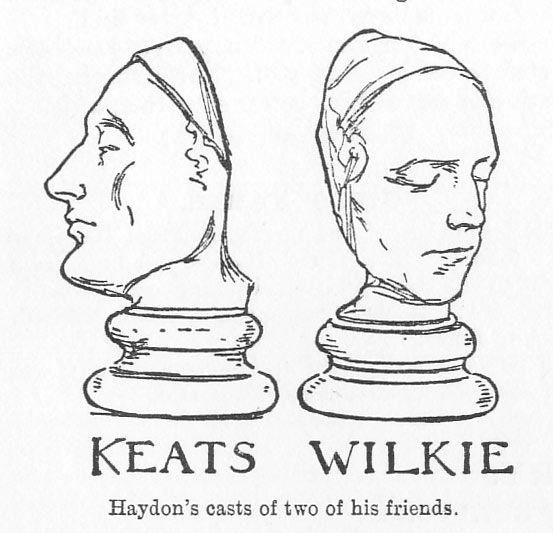
'His custom of taking casts of his friends' faces was sometimes rather dangerous to the sitters, and they were nearly suffocated.'
'Lord Elgin ... saw with distress how the marvellous sculptures by Phidias, decorating the Acropolis at Athens, were being neglected and destroyed. They were rescued by his agents, and brought to London. The incident caused a great stir, and there was much difference of opinion about the statues. Haydon saw their beauty, recognising the sublime in art. He took up the defence of the Elgin Marbles vigorously, and it was really due to him that after a parliamentary inquiry they were bought for the Nation, and are now in the British Museum. He obtained leave somehow to make casts of some of the figures.
"16th November, 1815. I hurried away for a plaster man! As I was passing Prince's Street, I passed two inside a shop moulding. I darted in, and said: 'Get some sacks of plaster, and a cart, and follow me. I'll put money in your pocket.' They obeyed me directly. As we got down at Burlington House I said: 'Now, lads, as soon as this gets wind we shall be stopped, so work away.' They took fire, for with Italian quickness they perceived the truth...
...So we went on up to 8th December: when they alarmed Lord Elgin ... it was too late, the cream of the collection was secured." The casts were afterwards sold to Russia.'
Image and text by Ruth Cobb from children's annual Chatterbox, J Erskine Clarke MA, Wells Gardner, Darton and CO, London 1927
*The fact that he is in major art collections like the Tate's suggests that he was at least better than 'mediocre' as the text by Ruth Cobbs describes. These days the mediocre artist is unlikely to enjoy such a priviledge.
No comments:
Post a Comment